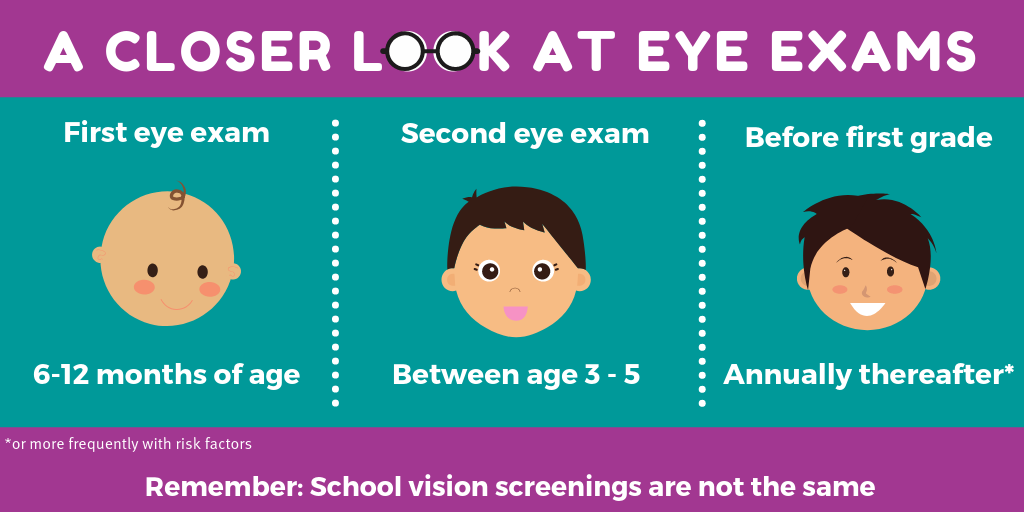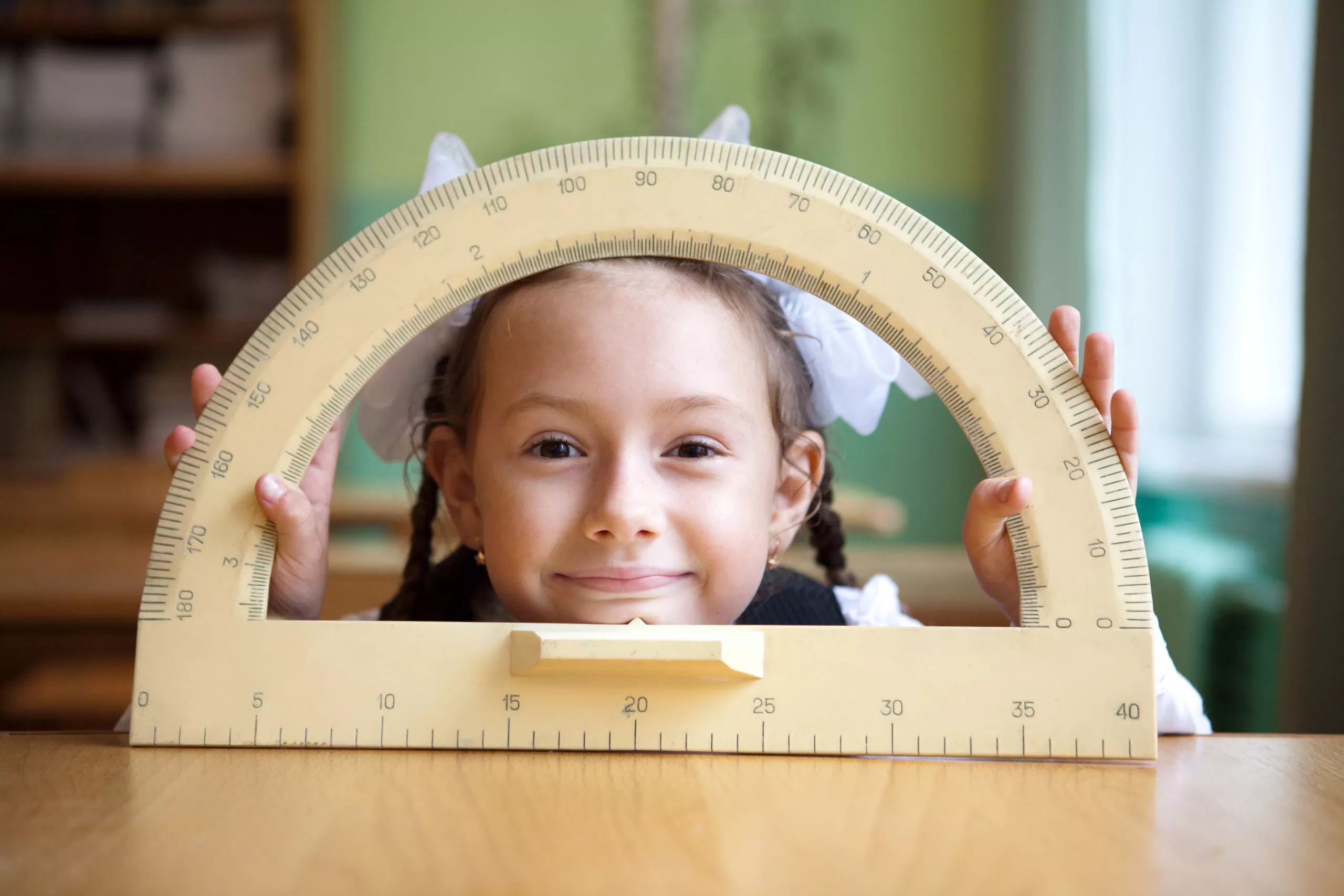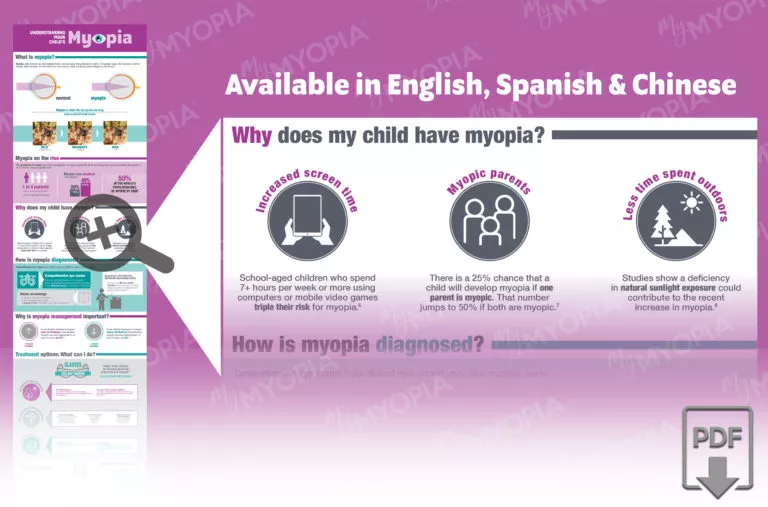
As you begin to think about all the ways you can set your child up for back to school success, you also need to think about your child’s vision—even if you haven’t noticed any issues. According to the American Optometric Association (AOA), as much as 80% of a child’s learning occurs through the eyes.1

Why eye exams need to happen early
Between seeing the board, reading, writing, computer work, and soccer at recess, your child’s sight is constantly at work inside and outside of the classroom. And vision is more than just the ability to see clearly, it’s the ability to understand and respond to what is being seen.
Elias Traboulsi, MD, MEd, Head of Cleveland Clinic’s Department of Pediatric Ophthalmology, emphasizes that eye exams aren’t merely a way to know whether your child needs glasses. Like regular exams with a pediatrician, eye exams are about preventive care.2 Comprehensive eye exams can help detect eye conditions, like myopia, early. Myopia, or nearsightedness, is one of the most pervasive vision impairment causes. In the U.S., 40 percent of kids have myopia compared to just 20 percent three decades ago, according to the American Academy of Ophthalmology.3 Without intervention beyond glasses, myopia can progress, often leading to high myopia, which causes long term effects.
So, when should your child get an eye exam? And how often?

Dr. Traboulsi, along with the American Optometric Association and American Academy of Ophthalmology, recommends a comprehensive eye exam by an eye care professional by age one, to be repeated before kindergarten in children without any evident eye problems.
Expressing the importance of early eye exams, in May 2019 the New Jersey State Assembly passed a bill that requires children, ages six and younger, who are entering a public preschool, public school, or a Head Start Program for the first time, to have a comprehensive eye examination by January 1 of the child’s first year of enrollment in the school or program.
These exams become much more important in children who:4
- Have a sibling or a parent with a major eye problem
- There is a 25% chance that a child will develop myopia if one parent is myopic. That number jumps to 50% if both are myopic.5
- Have an eye problem detected by a pediatrician
- Are suspected by parents of having an eye issue
“Even if there are no obvious symptoms, your child may still have a problem with his vision,” Dr. Traboulsi says.
More from the American Optometric Association: children need more than school vision screenings
Because vision may change frequently during the school year, regular eye and vision care is important. The most common vision problem is nearsightedness or myopia. However, some children have other forms of refractive error like farsightedness and astigmatism. In addition, the existence of eye focusing, eye tracking, and eye coordination problems may affect school and sports performance.
Your child should receive an eye examination every year, or more frequently if specific problems or risk factors exist, or if recommended by your eye doctor. Unfortunately, parents and educators often incorrectly assume that if a child passes a school screening, then there is no vision problem. However, many school vision screenings only test for distance visual acuity. A child who can see 20/20 can still have a vision problem. In reality, the vision skills needed for successful reading and learning are much more complex.
With this information in-hand are you ready to check your child’s eye exam off of your back-to-school checklist? To help you prepare, here are 7 questions that you can print or have saved on your phone for easy reference during your child’s next eye exam.
Click here to Download the 7 questions
Tags: myopia, nearsightedness, eye exam, eye health, back to school

